Climatic equipment is installed to create comfortable living conditions. Small inconveniences in the form of the hum of a working fan are noticeable only for the first time. The noise of the split system does not exceed the level of a loud conversation. The appearance of uncharacteristic sounds disturbs the usual order. Depending on the time of occurrence, they say different air conditioning problems. Serious breakdowns are corrected by the service center masters, and you can tighten the loose screw yourself.
Why there is a knock
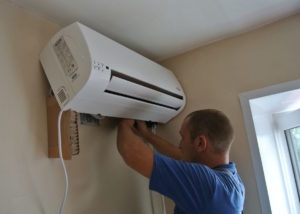
The guarantee of a long and reliable operation of climatic equipment is a high-quality installation. For the indoor unit, select a place away from heat sources. Fastening is carried out on a mounting plate. The wall material must be able to withstand the weight of the equipment with a margin. The route between the indoor and outdoor unit must be sealed and hidden in thermal insulation.
Violation of the installation rules leads to problems in the operation of the air conditioner. But not only the installation affects the functioning of technology.
A knock on a block occurs for several reasons:
- Drainage system malfunction. For collection and drainage of condensate in the construction of the indoor unit there is a drain pan and a drain hose. Stagnant moisture, improper drainage or kinking of the pipe lead to gurgling of water. In winter, the problem is exacerbated by freezing.
- Hull creak. When the temperature changes, the plastic case of budget models emits a crackling sound. It occurs as a result of expansion or contraction of the material. It is not dangerous for the block and passes in a few seconds.
- Fan knocking. Loosening the screws displaces the impeller. It hits the bars and other details. Worn bearings affect engine performance. The unit is functioning but making knocking sounds. It is characterized by an uneven rhythm.
- The motor mounting bolts are loose. Heavy loads and continuous operation lead to wear and tear on the fasteners. Loose bolts do not hold the motor well, it knocks when the fan is turned on.
- Extraneous noise includes the sound of dripping water. It occurs when the heat exchanger defrosts.
- Clicks in the indoor unit. When the equipment is turned on and off, an automatic relay is triggered. If clicks are heard during the operation of the unit, the tonality of the engine changes in parallel, then this is a signal to call the master.
- Foreign objects, such as a retaining bolt, have entered the unit.
- The hum and vibration of the air conditioner is caused by the weakening of the bearing capacity of the wall, the appearance of cracks in the place of fixing the device.
Wind is a common source of noise
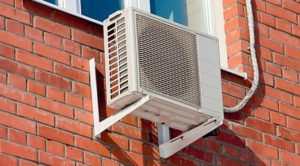
The external block of the split system is installed outdoors, it is connected to the internal trunk pipes. In strong winds, poorly secured equipment sways. Sound is transmitted to the indoor unit. Another source of noise is the drain hose from the air conditioner to the outside. The air conditioner knocks in high winds when gusts blow into the end of the drain pipe, creating a characteristic hum. The generated pressure directs air to the indoor unit. Gurgling sounds are heard in the drain pan.
Poor thermal insulation and sealing of the hose outlet leads to swinging and knocking. This is an installation defect, it is easy to fix it on your own.When using condensate drain to the sewer, it is recommended to install a coupling with a non-return valve. This detail allows you to exclude extraneous sounds.
In windy conditions, problems occur with the equipment turned on and off. Manufacturers recommend that you carefully choose the installation location for the outdoor unit and place it under a protective visor. An unusual sound when the air conditioner is operating in calm weather signals a blockage. In the summer season, poplar fluff and leaf fall, it is often necessary to clean the fan blades of the outdoor unit from debris.
Air conditioner operation in winter

Standard split systems are not designed for operation at temperatures below -5-7 °. Manufacturers indicate the limit indicator in the documents. Air conditioning systems with a winter kit work normally. They function at -30 °. Heating mode is popular during the cold season. Including equipment, remember the problems that arise during the operation of units that are not designed for frost:
- the compressor oil thickens, its work becomes difficult;
- freezes drainage;
- the heat exchanger freezes.
Low temperatures lead to an independent transition of freon into a liquid state in the compressor of the outdoor unit. Unusual sounds appear when the air conditioner is off. Noisiness is added by periodic defrosting of the outdoor unit. Air conditioners knock in the apartment in winter due to the lack of freon in the system. Refrigerant is lost through leaks due to improper installation. In this case, a diagnosis by a climatic technician is necessary.
A common practice is to preserve household air conditioners for the winter. The split systems are disconnected from the power supply, the drain pan is drained.
Knock when on and off
The problematic unit of a working air conditioner is a fan. It makes loud noises for several reasons: loose fasteners, engine wear, impeller deformation. Contamination of the blades leads to imbalance, impacts on the panel. Air conditioners knock when off due to clogged drainage system or improper refrigerant circulation. When turned on after a long time, a simple pump works with a bang, but this is a short-term phenomenon.
Eliminating the problem
You can remove some of the unpleasant noise yourself. Difficult problems are entrusted to service representatives, the intervention of a non-professional aggravates the situation.
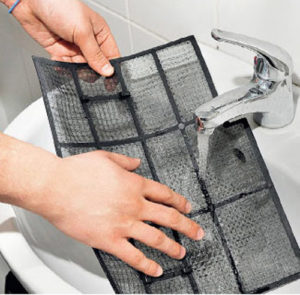
In what cases do they do without the invitation of the master:
- The unit is installed at a large slope. Level the air conditioner using a level, place it at an angle of no more than 5 °.
- The fastening screws are loosened, so the indoor unit of the air conditioner knocks. The fastening is tightened up to the stop.
- Inspect the filter of the indoor unit. Incorrect operation of equipment is often associated with its contamination. The coarse filter is taken out, washed under running water, dried, then inserted into place. The procedure is carried out every 2-3 weeks, if there is a lot of dust in the room, every week.
- Poor drainage tube angle. The hose is bent closer to the wall, the short branch is built up. If the air conditioner does not work in winter, install a plug. It prevents the penetration of cold and prevents wind from blowing out.
Immediate referral to specialists is recommended in case of crackling and loud noise in the outdoor unit when the air conditioner is turned on. These are signs of a compressor malfunction.
The noise level of the indoor unit of a household air conditioner does not exceed 26-38 dB. Any malfunctions associated with knocking and other extraneous sounds are noticeable from the moment they appear. Some of them are safe, but most require diagnostics. Calling a specialist from the service center will eliminate the need to change expensive parts, such as the compressor of the split system.

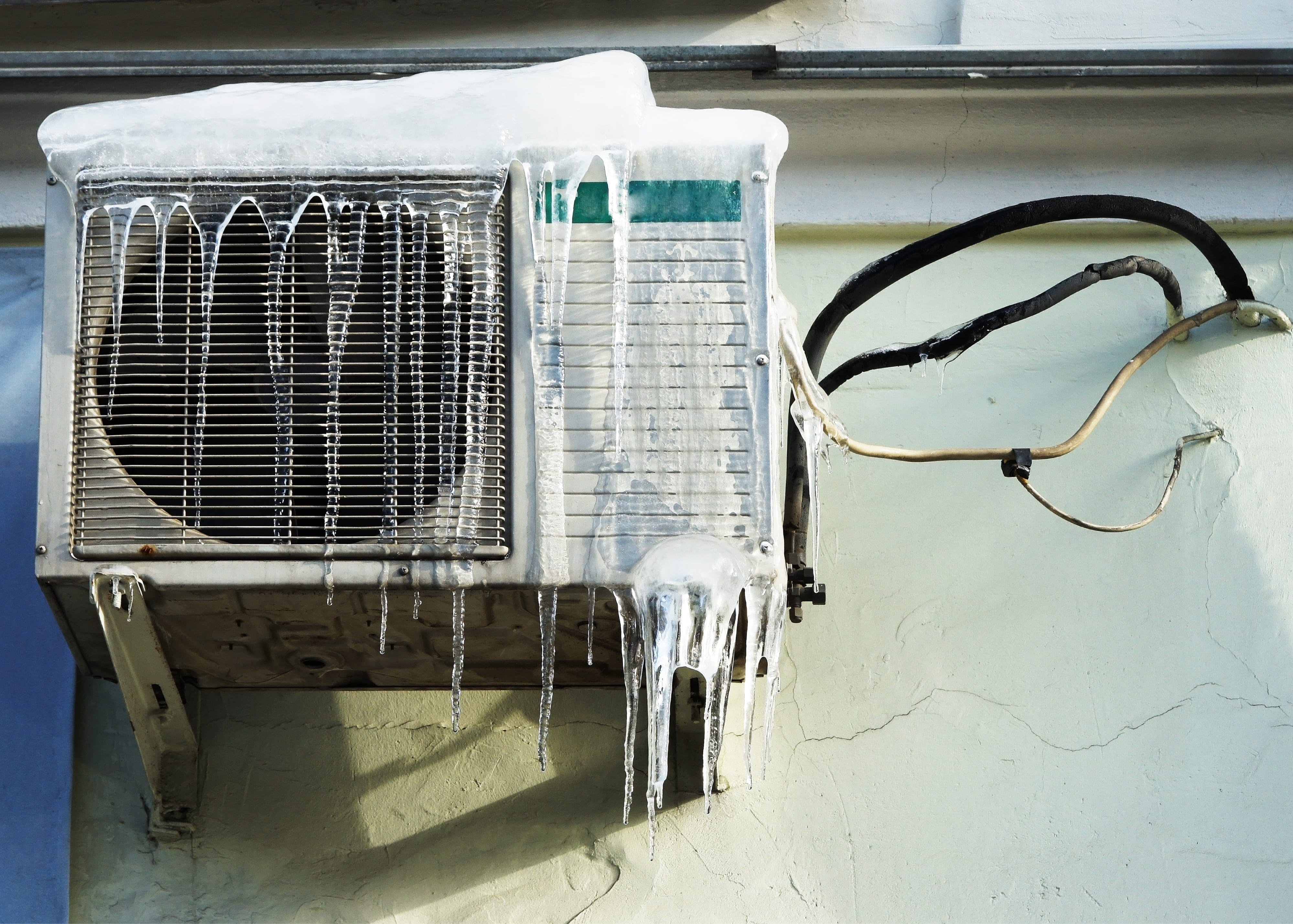
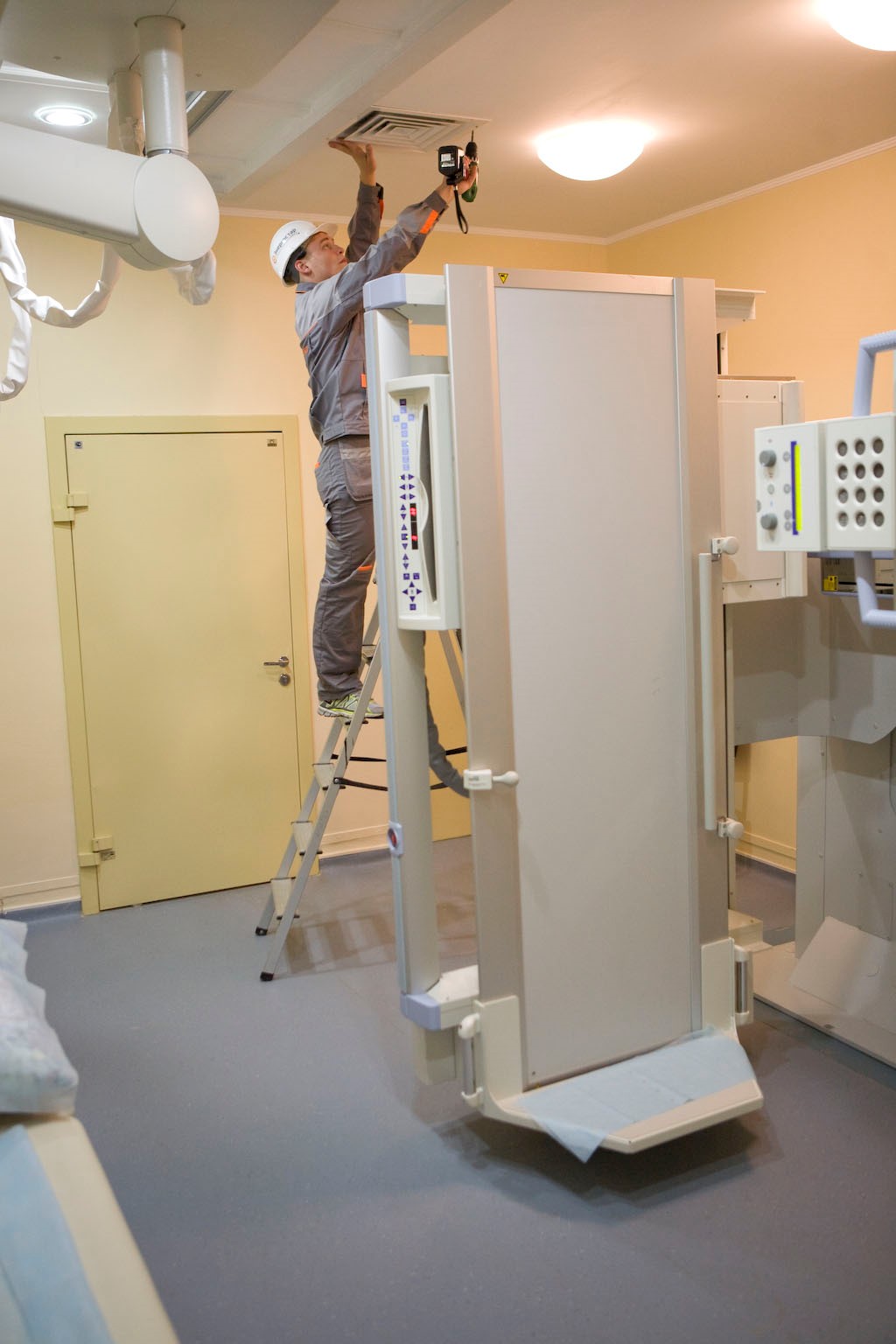
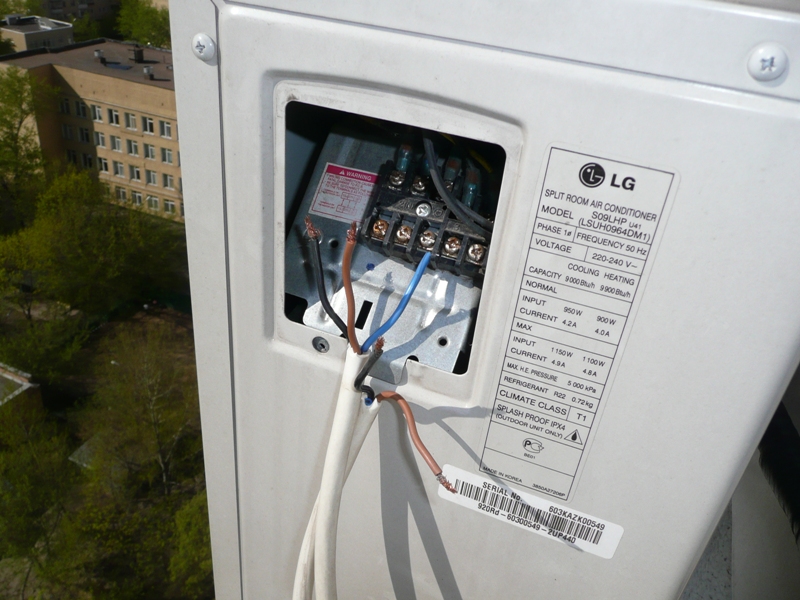
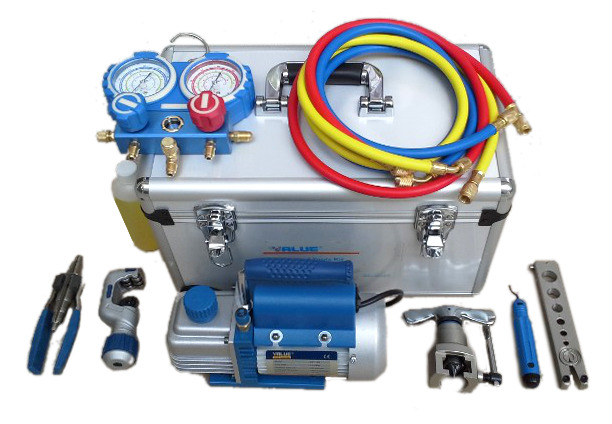
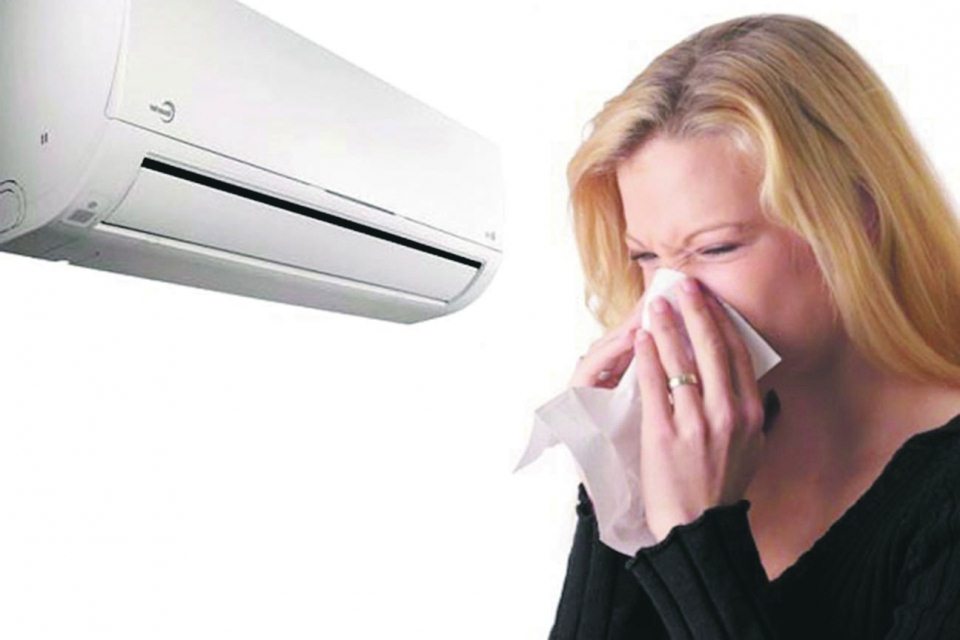
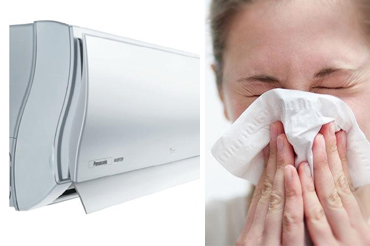
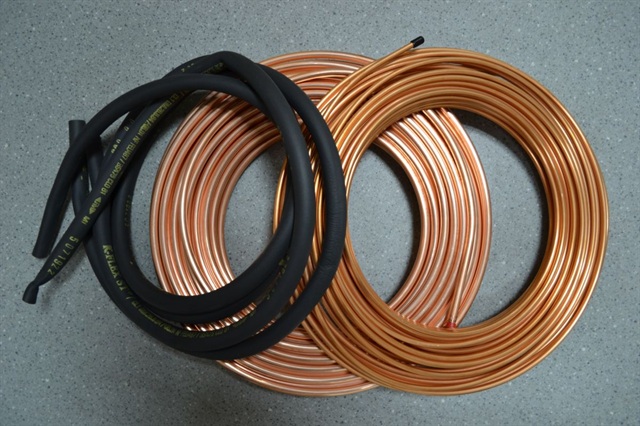
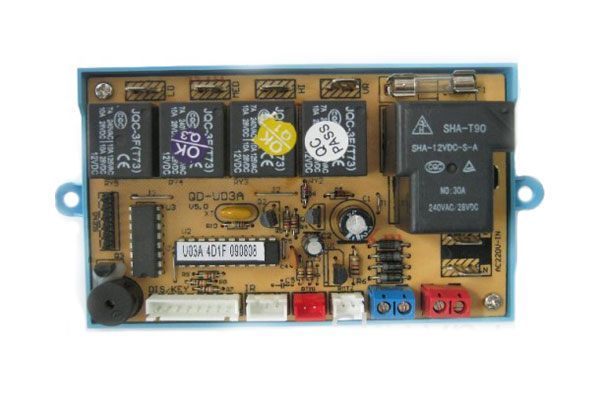
The article prompted me to think. The knock emitted from the indoor unit. I switched on the cooling mode for 30 seconds, the knocking stopped a couple of minutes after turning off and did not resume for about 10 minutes.